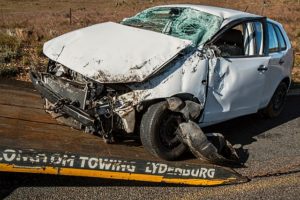 It’s six months after your car accident and you’re still waking up at night with horrific nightmares of the accident. You picture the accident every night when you go to sleep, replaying itself in your head over and over again. During the day, you feel anxious and irritable, ready to lash out at anyone who tries to speak with you about the accident. Sometimes, you’re too afraid to even look at a vehicle, much less get inside one. These are the lingering effects of PTSD that somebody might experience after they have been involved in an accident, which can be just as drastic as the physical effects of an accident.
It’s six months after your car accident and you’re still waking up at night with horrific nightmares of the accident. You picture the accident every night when you go to sleep, replaying itself in your head over and over again. During the day, you feel anxious and irritable, ready to lash out at anyone who tries to speak with you about the accident. Sometimes, you’re too afraid to even look at a vehicle, much less get inside one. These are the lingering effects of PTSD that somebody might experience after they have been involved in an accident, which can be just as drastic as the physical effects of an accident.
PTSD Explained
By understanding PTSD a bit better, you can take a look at your own personal circumstances to determine if this is what you are going through. Post-traumatic stress disorder, also known as PTSD, is a serious psychological condition that affects people who have been through a harrowing experience. Many people think that those who have experienced the devastating effects of war are the only individuals who can experience PTSD, but this is far from the truth. PTSD can happen to anybody who has witnessed a traumatic or fear-inducing incident, and many people will go through this every year when they are involved in a life-changing car accident.
Some of the symptoms that people experience after they have been involved in an accident and received PTSD are feelings of intrusion, numbing and wanting distance, avoiding people or certain situations, or constant alertness. You might be feeling paranoid when you are on the roadways, feel hopeless, or distance yourself from the people you love most. PTSD is not the same for everyone, which means that you could experience altogether different aspects than another person. One person might experience nightmares or have trouble sleeping, while another might experience dreadful hallucinations.
If Your Car Accident Led to PTSD Symptoms
The American Psychological Association says that car accidents are actually the leading cause of PTSD among the general population. Treatment for PTSD can sometimes be a complicated aspect to endure, with procedures such as speaking with a therapist, taking medication, or a combination of both. If you believe that you are experiencing the many effects of PTSD following your car accident, it is extremely important to speak with your physician or a recommended specialist who can help you through this difficult time so that you do not have to suffer the consequences of an accident on your own.
Following medical treatment, it is especially important to speak with an experienced attorney who has handled many types of car accidents in the past and is willing to help you receive damages after the recklessness of another party has caused you some type of harm. You might be able to compensate for mental anguish, medical bills from your treatment, lost wages from missing time at work, and more. At Katz Kantor Stonestreet & Buckner, we want to be your voice as you navigate through the legal system and work toward results you deserve during this difficult time. We will be your advocates as you stand up for your rights. Contact us for more information today at (304) 713-2014.
Note: This post was created with the help of secondary sources operating independently from Katz, Kantor, Stonestreet & Buckner Law Firm. The information used from these sources has not been independently confirmed by our staff. If anything included in these posts is incorrect, please inform us and we will promptly correct the post.
Disclaimer: Our intent with these posts is to honor the victims of these terrible accidents and inform the public about how to avoid these accidents and what to do in the event of one. This information should not be considered legal or medical advice.




